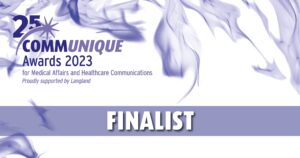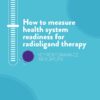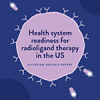What we’ve achieved
HPP worked with an International Expert Advisory Group to develop the Radioligand Therapy Readiness Assessment Framework, which is the first tool of its kind. As this highly targeted and safe cancer treatment is being sought out by patients and clinicians alike, barriers to its implementation must be addressed to enable equitable access.
The framework has been made available in the public domain under a Creative Commons licence, to enable stakeholders anywhere in the world to apply it to their own national context. It is accompanied by a user guide, explaining each step of the assessment in turn and containing methodology used to create the framework.
The framework was launched on 9 June 2021 at an ancillary event to the American Society of Clinical Oncology Conference.
HPP has also worked with experts to apply the framework to the UK and US health systems. The adapted framework for the UK was launched at a webinar on 9 September 2021, along with a situation analysis and policy blueprint based on the findings from the UK assessment. The adapted framework for the US and its associated materials were launched at a webinar on 3 November 2021.
In 2023 we developed a report in partnership with the European Health Management Association: Health system readiness for innovation: putting research into practice to drive effective implementation . The report outlines the principles required for the effective implementation of innovations and highlights how frameworks can be used to help achieve this.
Building on the international framework, HPP has developed a series of key performance indicators that can serve as targets for countries looking to improve readiness for the integration of radioligand therapy.
These indicators, which are based on expert consensus, provide policymakers with the context and data needed to drive evidence-based decision-making. They can help countries identify what they should be working towards and where further action is needed, supporting cross-stakeholder collaboration to bring about policy change that can address identified gaps.
The UK health system readiness assessment for radioligand therapy was nominated as a finalist for the Excellence in Communicating and Using Data category at the 2023 Communiqué Awards.

This is part of a longer-term project on radioligand therapy that HPP has led since 2019.








